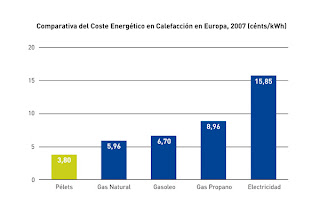Misleading advertising of "blue" heat radiators
By what they are not worth "blue" heat radiators?
I sincerely believe that they are a sham, a hoax. Promise you more heat and less spending from light but all they do is to heat less for a longer time, and at the end the electricity bill is the same (at the end and at the end it's convert electrical energy into heat; more Watts need more heat; to heat "x" cubic meters "and" Kw, irrespective of the energy that you use). Radiators of "Night fare" which are heated at night and radiate heat by day are better (you need to hire that rate).
Also only the fixed per month you have to pay for hiring more power made them undesirable.
If you're going to radiators in your House get well; heat part of electricity tends to leave at least 1/3 more expensive that heat with natural gas, for example.
While it is true that the installation is the cheapest thing (you do four holes for the bracket, put a Plug and ready) in the long run, you're going to regret and will end up selling them.
I did the calculation for my house and gave me that in 6 years it repay the installation (boiler, radiators and pipes, all inclusive) by the difference that gave me (in addition to the comfort) electric radiators to get gas.
They are only recommended when you have access to the gas (although there are also cylinders which bring you them home).
It is not a green energy; on average 55% of energy is lost in the process of converting the energy of the gas, oil or coal in electric power (and not to mention that comes from nuclear power stations; the ecological cost of these is little considered and already I will dedicate another day to talk about it).
Therefore, when you talk about "green" heating does not cheat on you, you switch to energy cheaper and respectful with the environment friendly as gas, heat pumps ("inverter") or better still: the energy from the Sun to generate heat underfloor.
Excerpted from the website of Ocu (Organization of consumers and users):
Under the gimmicky "calor azul" trade name protection, simply devices heaters that use electricity: thermoelectric radiators, convectors, etc. Although the manufacturers who sold them seem to suggest that they provide heat in an ecological manner, the truth is that the most efficient heating systems are those serving gas; i.e. that the electrical systems extracted lower yields the energy used (think that, among other things, the transport of electricity to our homes has many losses. In addition, the electric heating is currently more expensive than gas heating).

